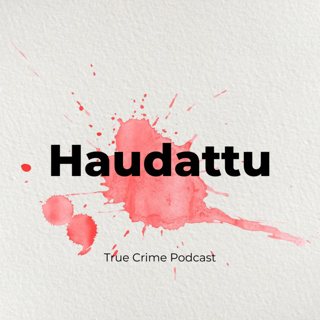
The Causes of World War 1
The reasons for the Great War go way beyond the assassination of Franz Ferdinand. Learn about the causes of one of humanity's most vicious wars.See omnystudio.com/listener for privacy information.
30 Marras 201716min

Is There Any Hard Evidence Hannibal Took Elephants Over the Alps?
Hannibal's crossing of the Alps with war elephants is considered one of the most daring move of the Punic Wars. But is it professionally accepted among historians that he actually crossed the Alps, and if so, is there any physical evidence?See omnystudio.com/listener for privacy information.
29 Marras 20177min

The Greek Military Owned The Ancient World. Why Did They Roll Over For the Romans?
When did the ancient Greeks stop making armies or supplying fighting men? One moment they're beating up the the Persian empire and conquering the known world, and the next, they're slave tutors for the Romans or philosophers in their major cities. Learn about why the Greeks dominated the Eastern Mediterranean in the ancient world and why their star fell against the Romans.See omnystudio.com/listener for privacy information.
28 Marras 20178min

Why Food Tells Us More About a Culture Than Anything Else—Ken Alba
You and your ancestor from 1,000 years ago have almost nothing in common. Your clothes are different. Your worship rituals are different. Your thoughts about the opposite sex are definitely different. Almost the only similarity is that both of you are driven to obtain food. In fact, one could say that civilization itself began in the quest for food. Epicure Jean-Anthelme Brillat-Savarin said it best: “Gastronomy governs the whole life of man.” In this episode, Professor Ken Albala of the University of the Pacific puts the subject of food and its importance in history on the table. Ken has studied widely on the types of cuisine that would be featured at a Roman feast, a medieval banquet, or a Renaissance Italian civic celebration. He’s ground Italian flour to make the sort of bread one would eat in Pompeii. He’s made stewed rabbit in a homemade clay pot the way an Elizabethean peasant would. He hasn’t tried field-mouse-on-a-stick (a popular Roman delicacy) but probably not for lack of trying. In this episode we discuss how Roman food reflected social rank, wealth, and sophistication; why the Middle Ages produced some of history’s most outlandish and theatrical presentations of food, such as gilded boars’ heads, “invented” creatures, mixing parts of different animals; and cooked peacocks spewing flames; modern foody gastronomy; and finally, one of my favorite desserts, Turkish Chicken pudding.See omnystudio.com/listener for privacy information.
27 Marras 20171h 2min

The Electoral College Isn't an Outdated 18th-Century Relic; It Keeps America From Falling Apart—Tara Ross
The Electoral college is one of the most confusing—and, after the 2016 election, contentious—parts of American democracy. After losing two of the past five presidential races in the Electoral College (EC), Democrats are determined to never let it happen again. And many Americans—on both the left and the right—find it to be a confusing and antiquated system we would do well to get rid of. But others think it's an indispensible part of American democracy. One of them is today's guest, Tara Ross, a legal scholar and author of The Indispensable Electoral College: How the Founders’ Plan Saves Our Country from Mob Rule. Tara argues the EC is neither outdated nor unfair—and the stability of the United States depends on it. She argues the Founding Fathers knew what they were doing. They ingeniously balanced the will of the majority and the interests of minorities, avoiding the instability that has bedeviled every other democracy. In this interview we discuss: Why the Electoral College safeguards national unity How the Electoral College prevents political crises in tight elections How the Founders came up with the Electoral College—and why they thought it was so important Why the Electoral Colege was meant to be more important than the popular vote Why the Electoral College doesn’t favor one party over the other Why the Electoral College is inappropriately—and incorrectly—labeled a “relic of slavery” ABOUT TARA ROSS Tara Ross has spent much of her legal career studying and defending the Electoral College. She is the author of two previous books, Enlightened Democracy: The Case for the Electoral College and We Elect a President: The Story of Our Electoral College and her tutorial “Do You Understand the Electoral College?” is one of Prager University’s most popular videos ever, with more than fifty million views. She has written for the National Law Journal, USA Today, the Washington Times, National Review, and the Weekly Standard. RESOURCES FOR THIS EPISODE The Indispensable Electoral College: How the Founders' Plan Saves Our Country from Mob Rule Tara Ross's websiteSee omnystudio.com/listener for privacy information.
24 Marras 201738min

Arabic Numerals Took Over 600 Years To Spread Across the West
Western scholars first encountered "Arabic" numerals in the seventh century, making mathematics and accounting much easier. But Roman numerals stubbornly stuck around until the invention of the printing press made them permanently obsolete.See omnystudio.com/listener for privacy information.
23 Marras 20178min

A Short History of the War of the Roses
The Wars of the Roses were a series of battles that were fought between the supporters of the House of Lancaster (Lancastrians) and the supporters of the House of York (Yorkists). The wars were called the Wars of the Roses because the Yorkists were represented by a white rose and the Lancastrians by a red rose.See omnystudio.com/listener for privacy information.
22 Marras 20177min

Richard Francis Burton—The Man Who Knew the Most Languages in History
Richard Francis Burton was an explorer, translator, and contender for the 19th-century's world's most interesting man. He was also functional in dozens of languages and translated monumental works of scholarship from Arabic and Portuguese in English.See omnystudio.com/listener for privacy information.
21 Marras 20177min





















